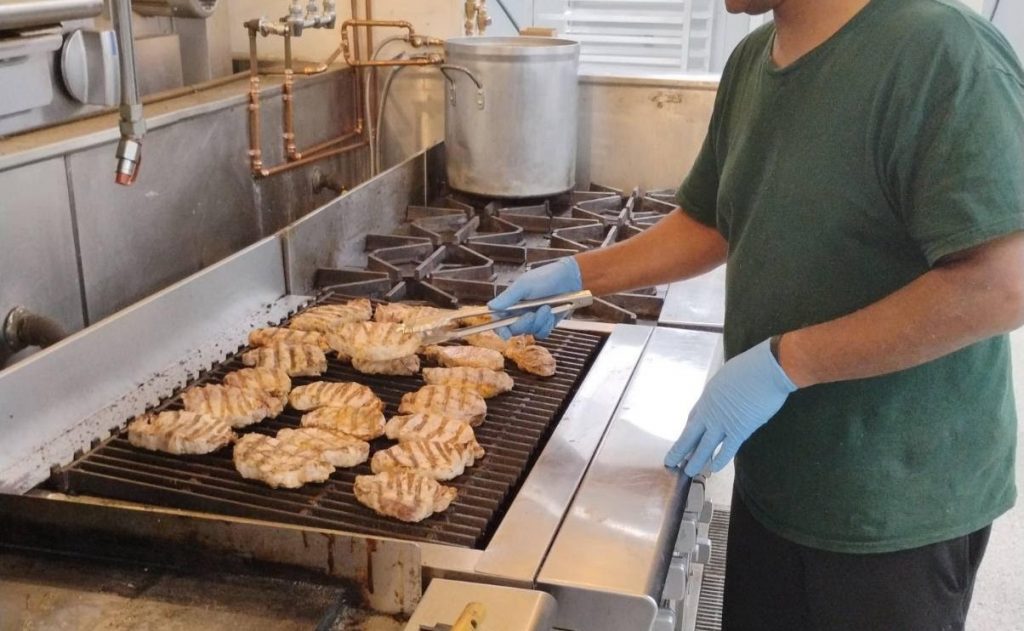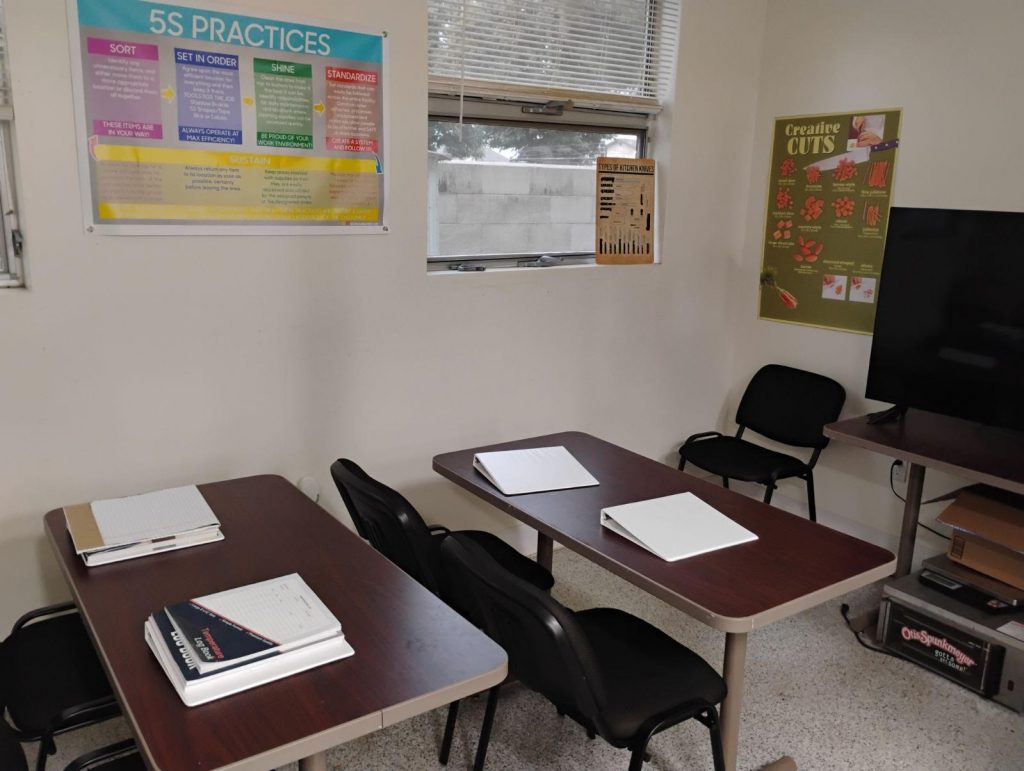
The Culinary Training Program with Michael Albright, SM Culinary Kitchen Manager
By Jessica Berrih, Development Coordinator
Launched in September 2023, Good Samaritan Shelter’s Culinary Training Program is a transformative initiative designed to equip individuals with the skills needed for a successful food service and hospitality industry career. This eight-week program, led by SM Culinary Kitchen Manager Michael Albright, goes beyond teaching cooking techniques. It empowers participants with essential life skills, fostering personal growth and self-sufficiency. Through a blend of hands-on training, teamwork, and a commitment to excellence, the Culinary Training Program is already making a significant impact.
Designed with an eight-week structure, participants are in 16 hours of training per week. The learning begins with students obtaining their food handler cards, non-slip kitchen shoes, and uniforms. The daily curriculum and worksheets cover various essential topics, starting with the basics of food safety and personal hygiene, as well as team building, communication, and the commitment and expectations of the work. As students progress, they move on to kitchen equipment safety, basic knife skills, basic math and measurements, and then to mother sauces and production.
The program began with an inaugural group of five. As the program progressed, three participants remained, fully committed to their training and development. The initial experience was a learning curve for everyone, says Kitchen Manager Michael Albright, due to an unexpected shift in focus. “This group got put into production after about week four due to production needs, so we had to adapt.”
Students discover how aspects of the program can contribute to their long-term success, not only in the industry but beyond. “A lot of this program is not only culinary skills,” says Albright, “[it’s] life skills, being part of a team, showing up on time, being able to communicate professionally, and setting realistic goals.”
Discovery also comes with challenges. The program has many moving parts, requiring effective communication between participants, culinary managers, case managers, program managers, day habilitation coordinators, and food coordinators. Staffing shortages also led to some reliance on participants for production support. This required them to adapt quickly and take on additional responsibilities. Through teamwork and dedication, these challenges were taken in stride, giving everyone involved a better understanding of needs and the opportunity to create solutions for the future.

The Culinary Training Program has already seen remarkable success, with participants achieving significant milestones that reflect the program’s impact. One participant joined the program later than the rest but quickly proved skilled. His advanced abilities allowed him to immediately transition into production work, showing proficiency and a strong work ethic. His dedication has paid off, and he is now employed by Good Samaritan, working 30 hours a week through the Welfare-to-Work program. Another participant has been with the program from the beginning and is committed to learning, consistently asking questions, and improving her communication skills. Her hard work and determination have led her to pursue further education, enrolling in the culinary program at Hancock College with aspirations in business management, baking, and cake design.
While many participants would have liked to spend more time in the classroom, the program has received overall positive feedback, with an appreciation for Albright’s industry insights and experience.
The first year of the Culinary Training Program has provided valuable insights, highlighting the strengths and the areas for growth. The program aims to refine its curriculum to better align with the real-world demands of the culinary industry while still providing time for foundational learning. In addition, the program plans to strengthen internal communication among various coordinators, managers, and participants to ensure a more seamless experience for everyone.
Through technical training, life skills development, and real-world experience, the program has made a tangible difference in participants’ lives, providing them with the skills and confidence they need to achieve self-sufficiency. As the program evolves, it will offer more opportunities and pathways to long-term success.
